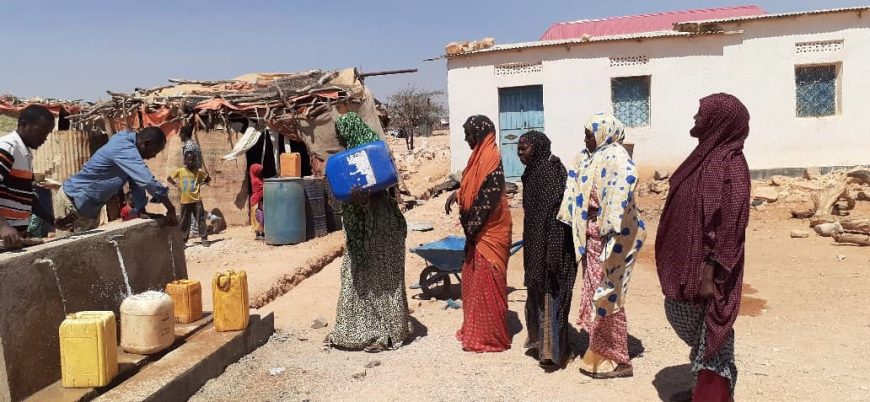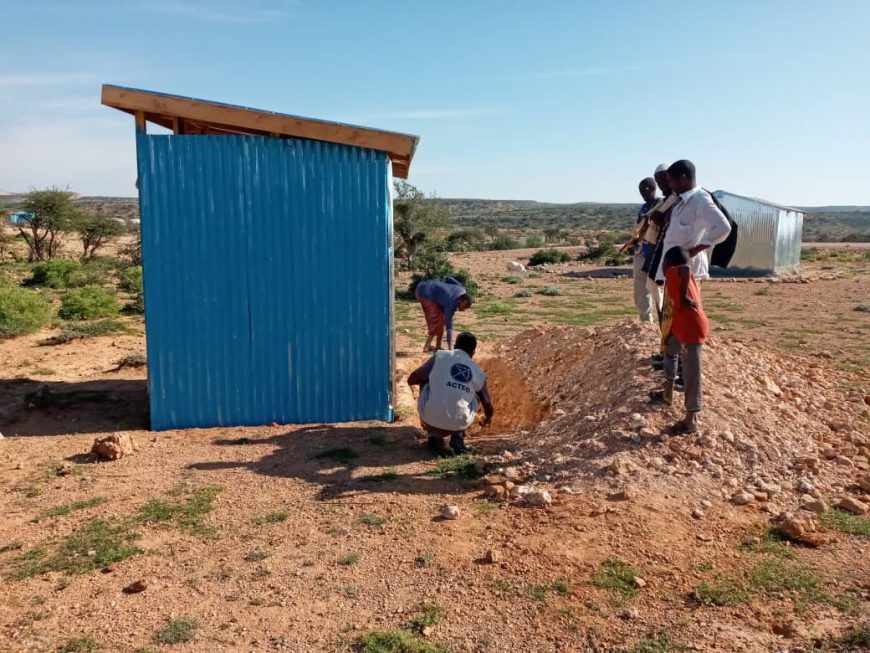Due to the recurrent and severe droughts that have affected the Sanaag region, rural communities have lost livestock and livelihoods. In addition, many have migrated to other villages where there is also limited access to safe and sufficient drinking water. Women and children walk for hours to water points.
ACTED’s WASH project aims to provide access to safe and adequate water; improve community sanitation and establish mechanisms to manage assets. ACTED is rehabilitating and drilling five boreholes, and providing training and materials for water asset operations and maintenance. To address the sanitation needs, 86 latrine blocks with solar lights are under construction.
After I lost all of my livestock, I decided to move to Habarshire where I have established a petty trade: a small teashop. To be able to run it smoothly, I have to fetch at least six jerry cans of water from Habarshire borehole every day. (…) I used to spend more time fetching water than taking care of my business. Currently, I receive water from the water kiosks built by ACTED in Habarshire, and it takes less than 30 minutes to get the same amount of water. I am spending more time on my teashop, and this will be a good opportunity for me to make more profit.

Also, in order to reduce open defecation, and to prevent the spread of water borne diseases, ACTED has built blocks of latrines with solar lights in eight sites of the Sanaag region. The solar lights will reduce the risk of violence against women and children, particularly at night. These latrines can be used safely by all residents, with access for members of the community with disabilities.
Mr. Mohamud Duale is a 43-year-old father of seven who lives in the Karashark IDP settlement with his family. Mohamud lives in a traditional Somali house with two rooms made up of wood, plastic and locally available materials with no latrine. Mohamud and his family used to practice open defecation and sometimes used to go to a distant public latrine in Karasharka, which was not safe during the night.

During the day time, we used to force ourselves to walk to a very distant public latrine. We could not go to these latrines during the night as they do not have lighting. The situation has changed since ACTED has constructed latrines near our homes. There are enough of them to be used by everyone, and they can be utilised all the time as the solar lamps light the whole area. We now feel more comfortable and no longer spoil the environment.